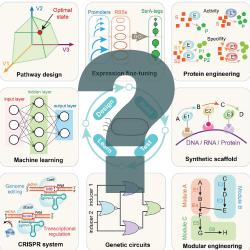The Promise of GE Foods 2.0: Haven’t We Heard All This Before?
GENETIC ENGINEERING
@OrganicConsumer | | Read the Full Article
Ken Roseboro writes:
“Proponents of synthetic biology and its ‘precision fermentation’ are claiming their products will help feed the world and mitigate climate change—the same claims made about earlier genetic engineering technologies, which never materialized.
Thirty years ago, proponents of new genetically engineered food crops made bold claims that the lab-created foods would help to ‘feed the world,’ create more nutritious foods, increase crop yields, and reduce pesticide use, among other bold claims.
Thirty years later, those claims remain unfulfilled. The two most common GMO crops are herbicide/glyphosate-tolerant soybeans and insect resistant corn. Neither of those crops are providing increased nutrition to consumers. They have failed to increase crop yields. The use of pesticides, particularly glyphosate herbicide, has increased by an estimated 404 million pounds. The majority of GMO corn and soybeans are used for animal feed, not human food, so the claim of feeding the world has also proven to be false.
Today, similar claims are being made about the next generation of GMOs, those produced by gene editing and synthetic biology. An article in National Geographic states that gene editing: ‘has the potential to change the foods we eat every day, boosting flavor, disease resistance, and yields, and even tackling allergens like gluten.’ On its website under ‘Feeding the World,’ synthetic biology company Ginkgo Bioworks claims it is ‘working towards a future where genetic engineering can help make foods that are sustainable, healthier, delicious, and accessible to everyone.’
But in its SEC filing disclosing the risks of its technology, Ginkgo Bioworks tells a different story: ‘The genetically engineered organisms and materials that we develop may have significantly altered characteristics compared to those found in the wild, and the full effects of deployment or release of our genetically engineered organisms and materials into uncontrolled environments may be unknown… Such deployment or release… could impact the environment or the health and safety of our employees, our customers’ employees, and the consumers of our customers’ products.’
Similar risks are found with gene editing. Proponents of the technology say it is precise. But an article in Nature magazine from July 2020 described how the use of gene editing on human embryonic cells caused “chromosomal mayhem.” That is not precision…”

